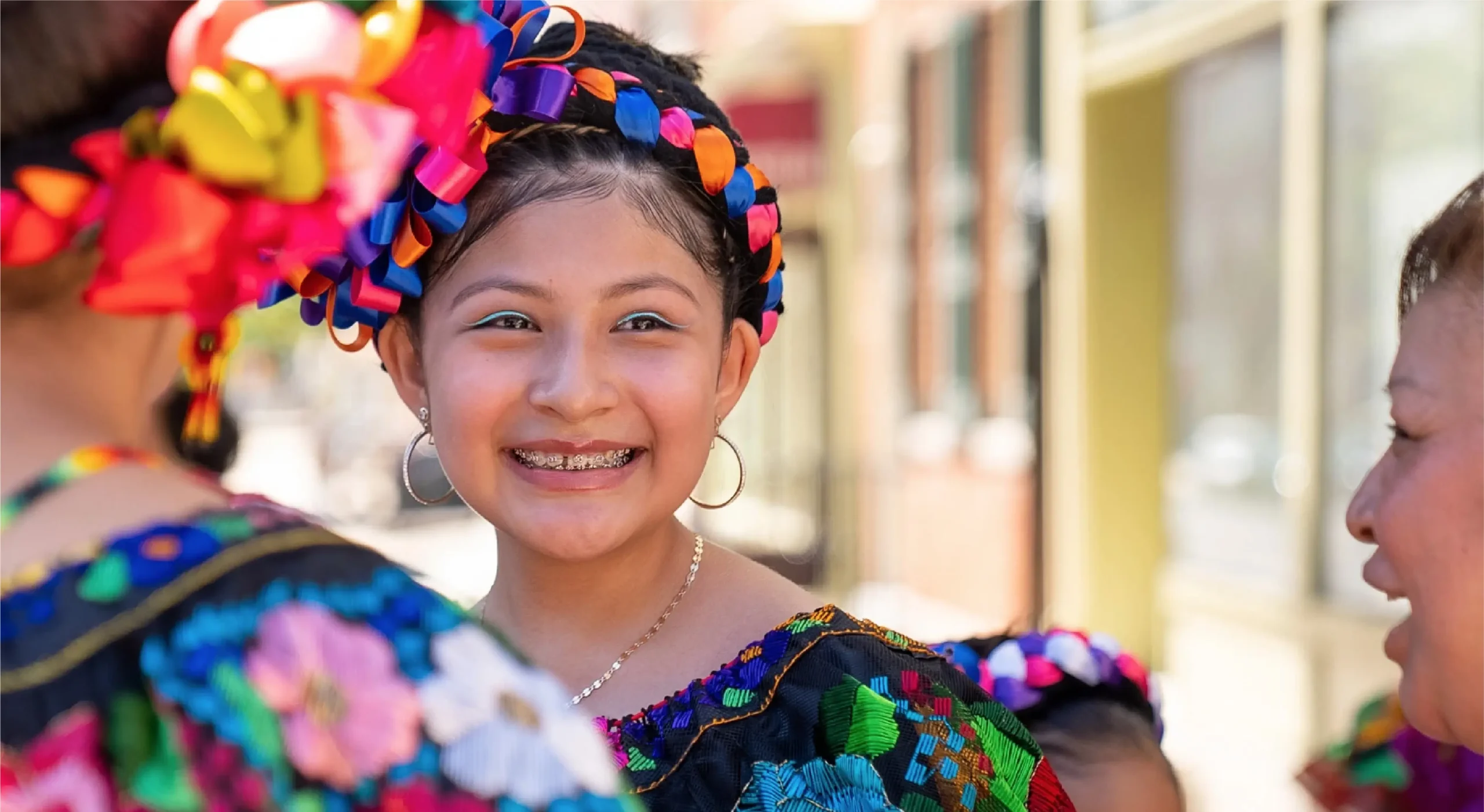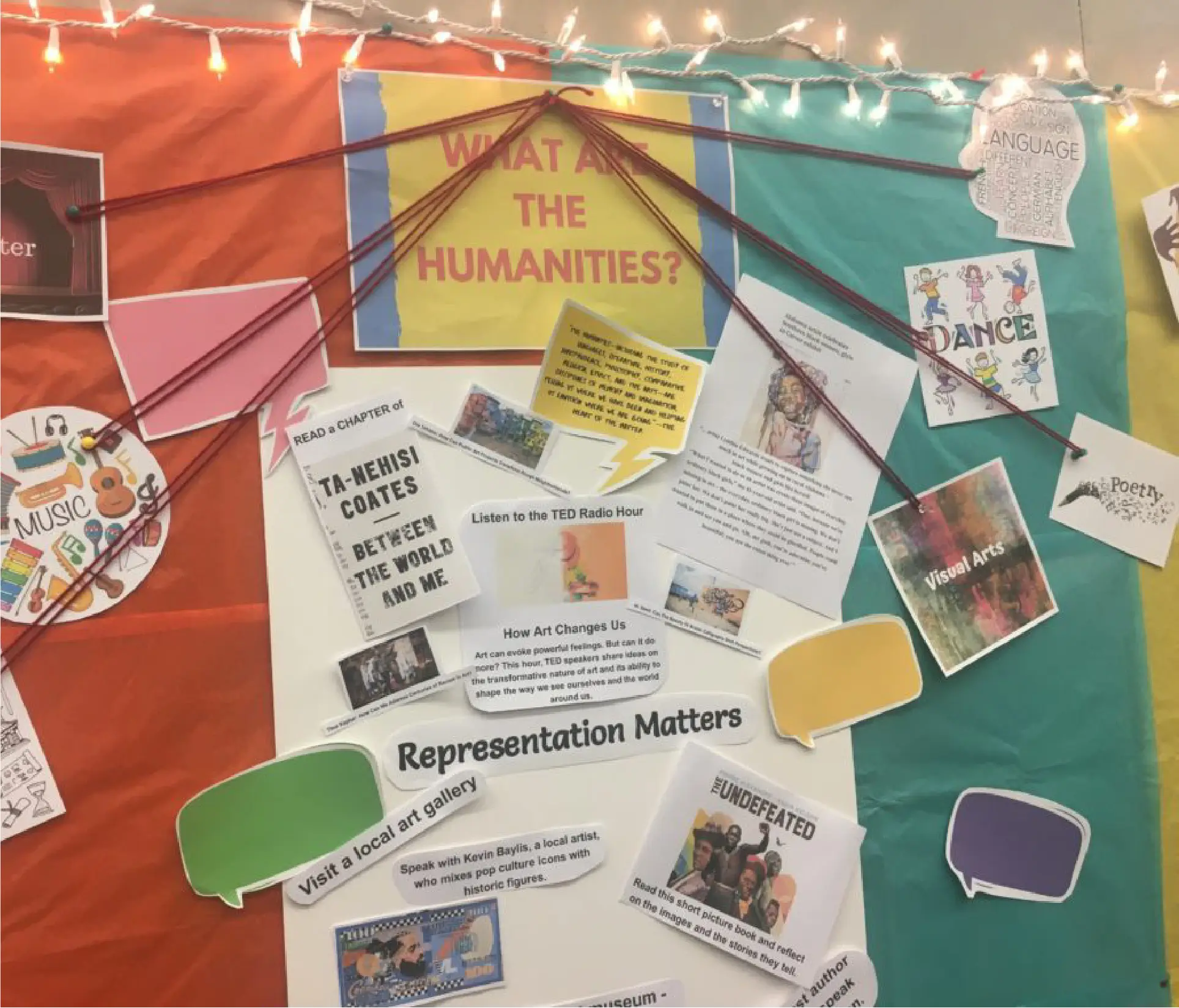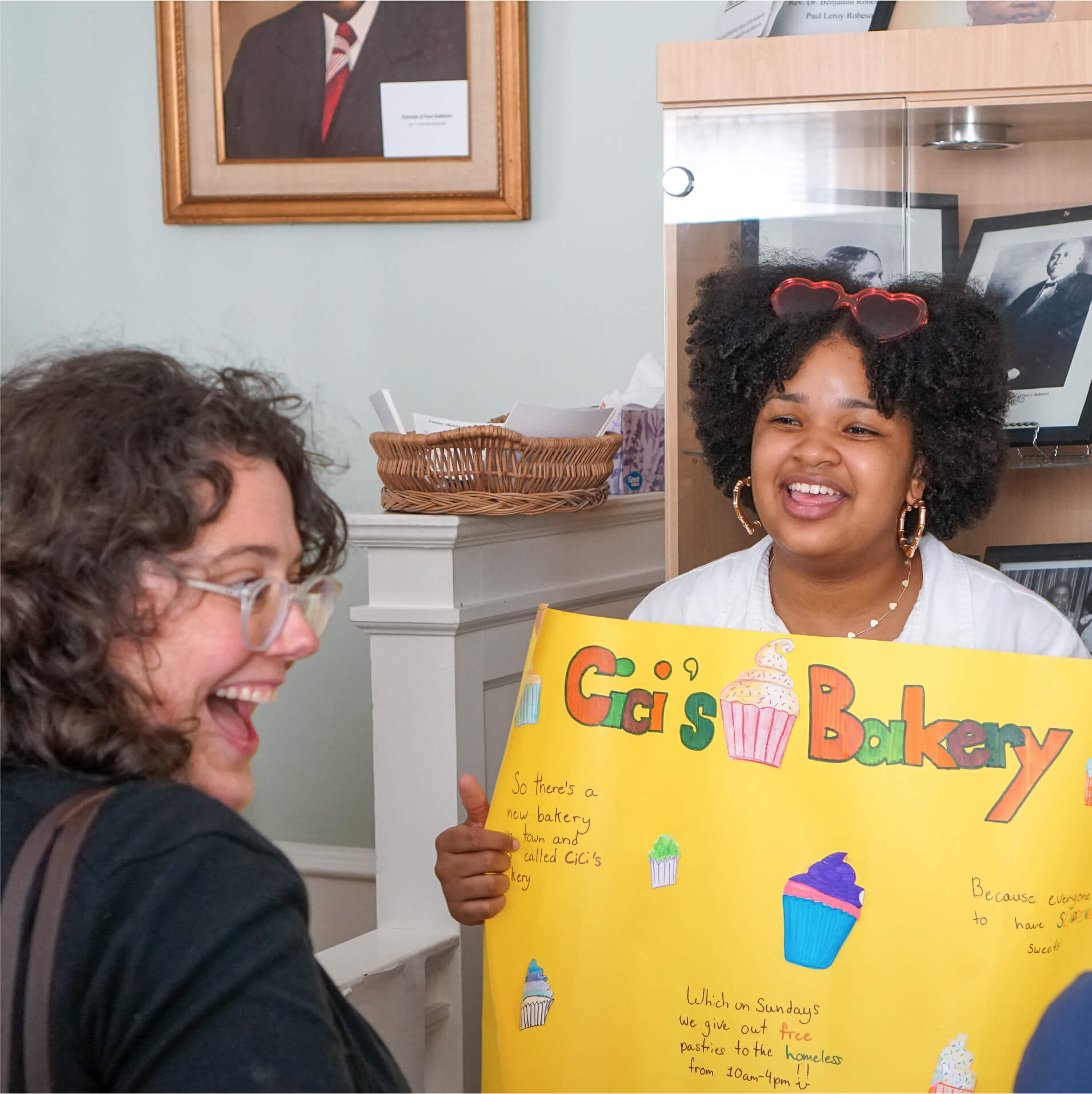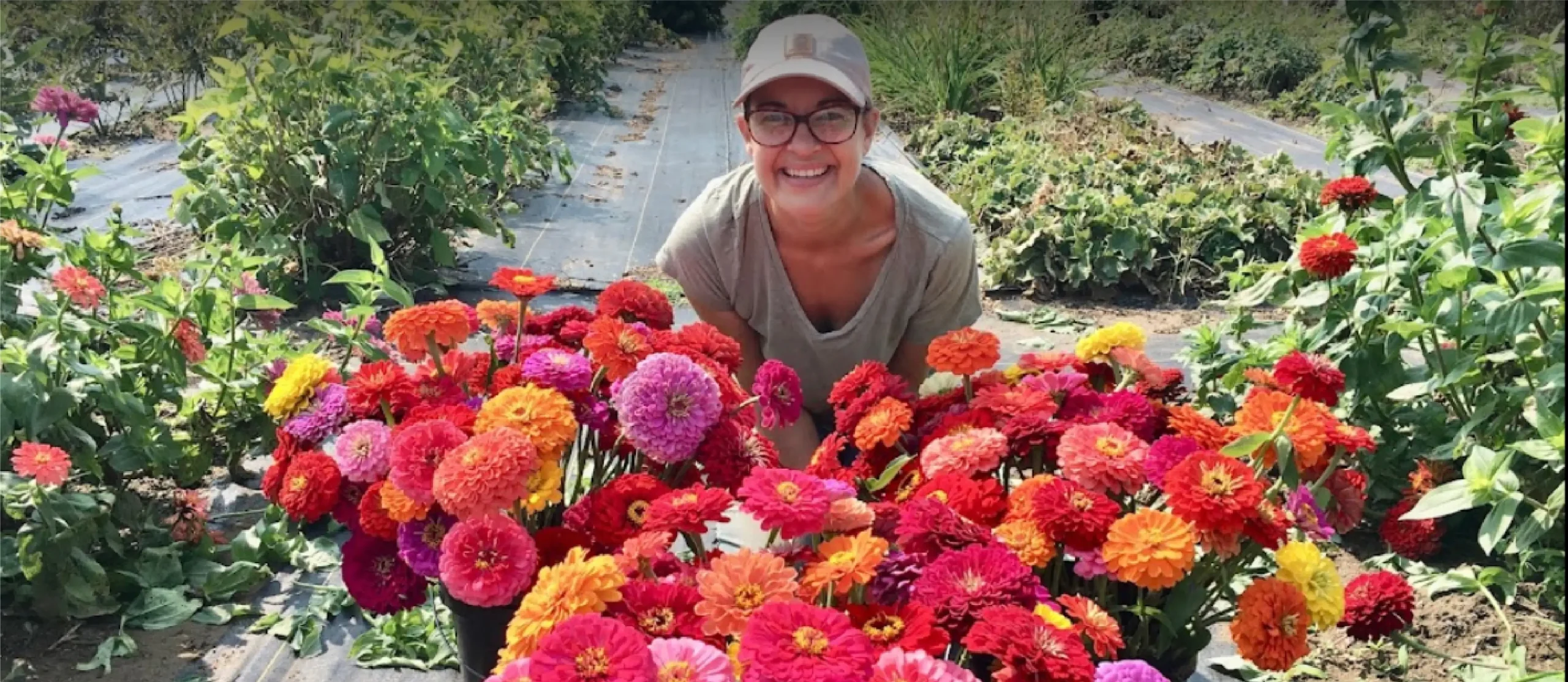Section 6 – Reframing the Humanities in Pennsylvania

The humanities in Pennsylvania are a vital, engaging, and human-centered practice. As a fundamental human right and a part of human flourishing and happiness, the humanities have much to offer.
Our research has demonstrated that practitioners have a range of backgrounds, specializations, and identities. They are driven by passion and animated by a shared sense of humanity to pursue this work. The last several years have been challenging for the sector, and practitioners have risen to these challenges with aplomb, deepening existing partnerships and increasing access to the humanities for the public.
In this final section, we make recommendations on how to move forward as a field through six calls to action statements, closing with an invitation to join the movement to reframe the humanities, and embrace a larger vision of its diverse people and practices.
Call to Action
1. Explore a strategic reframing of the humanities as a fundamental human right that emphasizes their roots in the human experience and in our humanity and that better describes the powerful work happening across sectors. Our participants agree that the humanities are core to human flourishing – that they connect, unify, and uplift. This is an urgent update to the way we talk about and advocate for the humanities. Looking ahead, more of this human-centered, community-driven work is deeply needed. By demystifying our shared language around humanities, we can be poised for collective action and able to seize new opportunities for meaningful change. Programmatic and rebranding efforts, like PA Humanities redefining the humanities as a people-centered pursuit, crafting the tagline, “We find the human connection in the humanities,” is an example to the field.
2. Amplify the lived experiences of BIPOC communities, celebrating and honoring this important asset. Local knowledge should be upheld and supported in the same way the field traditionally recognizes higher education and professional titles in the humanities. In addition, diversifying the staff at cultural and educational institutions can inspire students of color to pursue the humanities as a viable career path. BIPOC-focused professional development and support programs are also needed, including the creation of affinity spaces, continuing education and training opportunities, and further research to highlight BIPOC experiences, needs, and impact.

It’s a missed opportunity if you’re not really talking about this as collective community healing. Words like ‘belonging,’ ‘healing,’ and ‘community’ are important words, particularly when you are amplifying the voices of underrepresented groups.”
3. Develop career guidance, mentorships, and support systems for younger and emerging humanities practitioners, leveraging the value of lived experiences and alternative pathways. Despite an increasing global focus on STEM, there are many fulfilling and diverse career opportunities available in the humanities at all career levels. The humanities infrastructure needs to be widened and strengthened to support the emergence of younger and new practitioners as well as the work of longstanding contributors to the field. Possibility models show different paths to career success. These need to be identified and lifted up for others. Learning networks, like the ones PA Humanities builds for its grantees to share strategies, can serve as models to reach practitioners in locations where networks need additional support. Partnerships can be built with cultural and educational institutions to provide workshops and professional development.
The whole idea that museums could be a career was something that I didn’t experience until much later. Even though I grew up in a city where a high percent[age] of the population are over-educated. It’s a big time college town. My parents were not people who went to museums. When I worked at [a children’s museum] here in Pittsburgh, we talked about all the kids who came with school groups that would never visit a museum except with a school group. And that was me.”

4. Boost community engagement and volunteer opportunities through training, mentorship, and public awareness campaigns that cultivate an interest in the humanities. We learned that generational and demographic shifts are adversely affecting the volunteer support pipeline, and that new strategies of recruiting and supporting volunteers are needed – if it’s board service, training as a museum docent, or helping to paint a community mural. There must be more accessible and rewarding pathways for those looking to engage with their communities that can motivate participation and foster a deeper sense of fulfillment. This could be achieved through a range of opportunities and incentives, including incorporating new technologies, paying volunteers, and raising public awareness of volunteer opportunities and benefits.
It’s harder to bring [volunteers] in. You may be able to bring them in for the program, bringing their kids as a participant, but it’s very hard to engage with the full-time working parents right now.”
5. Broaden the spectrum of resources available for applied humanities activity to fuel growth and innovation across the field. We need to embrace a more holistic view that puts people first, investing in human capital in a way that builds capacity and collaborative energy. Dedicated funding, collaborative networks, and trust-based investments offer promising alternatives to the status quo. It is not just about increasing the financial investment in the humanities; it’s about enriching the field with a diverse array of technical, social, and cultural resources. Funders, policymakers, universities, and community leaders can co-create a more vibrant, inclusive and resilient ecosystem for the humanities to thrive.
Passion is sort of what’s expected to drive us in our jobs, and we get told that a lot… but they don’t realize that that workload and the lack of funding puts barriers in place to us being able to do it well, and in the long term.”
6. Engage in research that lifts up the voices of practitioners, using emergent processes that open us up to learn new things in new ways. These methods generate different, authentic results that build community and learning. As an example, the Discovery Project’s focus group on Latinx experiences in Reading, conducted entirely in Spanish with local facilitators, offered practitioners a more comfortable and authentic space to share their stories and perspectives more deeply without barriers. As researchers, grantmakers, and thought leaders we have to let go and work with others to learn the importance of cultural practice in communities, and do this with rigor and intention.
Take all of these people who filled out the surveys and find a way to make that… a bouquet of different flowers. That would be useful. It’s just not a dozen roses.”

Join the movement
The findings from the PA Humanities Discovery Project not only illuminate the profound impact of the humanities in Pennsylvania but also celebrate the diverse “bouquet” of people and practices that enrich our everyday lives. At PA Humanities, our commitment to learning and co-creating through research and conversation has been further strengthened by undertaking this deep process of discovery. With this fuller understanding of our diverse, interdependent humanities landscape, we are more committed than ever to our community-based work and advocating for the humanities and its practitioners.
This research provides PA Humanities, and other advocates, with a solid foundation for explaining how the humanities are essential for creating meaningful change, addressing social challenges, and promoting human flourishing.
The PA Humanities Discovery Project shows that there is still much to be done to reframe and sustain the humanities. Together, we need to grow the field with passionate practitioners, volunteers, advocates, and supporters from different walks of life. How do our transformative discoveries and emerging issues show up in your work and in your communities? What’s your call to action for the humanities?
We invite you to join the movement and participate in this important conversation about reframing the humanities. Visit DiscoveryProject.info or PAHumanities.org to connect with us and learn more about this research. Let us continue to share, learn, and grow, building a future where everyone can thrive.